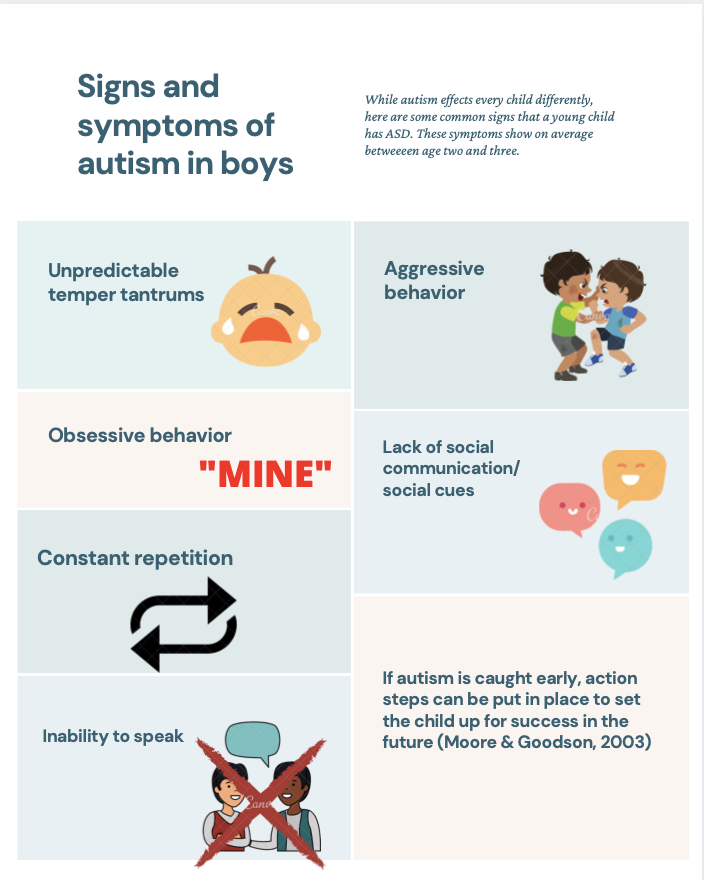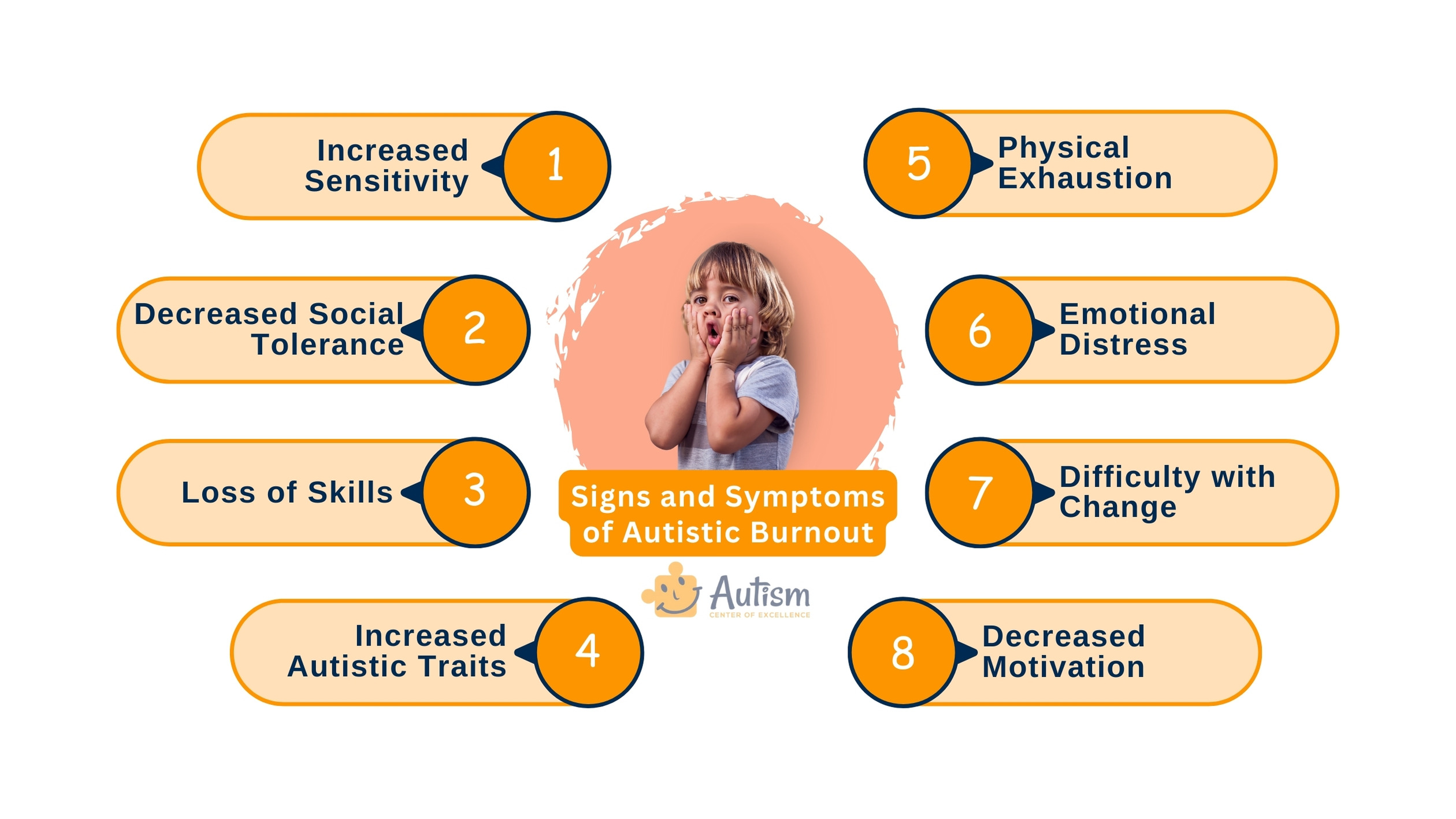When you should consider your family needs Autism Behavioral Therapy
When you should consider your family needs Autism Behavioral Therapy
Blog Article
Recognizing the Impact of Behavioral Autism on Daily Life and Social Communications
You could not realize exactly how deeply behavioral autism impacts everyday life and social interactions. People on the range usually navigate a world filled up with communication hurdles and sensory overload. These obstacles can lead to aggravation and seclusion, affecting their relationships and total wellness.
Defining Behavioral Autism and Its Qualities
Behavioral autism, often referred to as autism range condition (ASD), incorporates a variety of problems identified by difficulties in social communication, interaction, and repeated actions. You may notice that people with ASD frequently struggle to analyze social hints, which can lead to misunderstandings in discussions. They might discover it difficult to establish eye contact or participate in little talk, making social circumstances really feel overwhelming.
Communication difficulties can show up in numerous ways, from postponed speech development to a preference for utilizing fewer words. Recurring habits, such as hand-flapping or shaking, can function as coping mechanisms to take care of stress and anxiety or sensory overload. These characteristics can profoundly affect every day life, making it important for you to comprehend and sustain those with ASD. By identifying these attributes, you can promote an atmosphere that promotes acceptance and encourages reliable communication, helping individuals with autism prosper in their everyday communications.
The Range of Autism: Recognizing Irregularity in Actions
Autism range disorder (ASD) isn't a one-size-fits-all medical diagnosis; it varies widely amongst people. You may notice that some people with ASD display mild signs, while others may deal with extra significant difficulties. This variability can show up in habits, passions, and sensory sensitivities. You may encounter people who are highly verbal and involve quickly in discussions, while others could favor solitary tasks or communicate non-verbally.
Additionally, the method individuals with ASD reply to sensory input can vary significantly; some might be overwhelmed by loud sounds or bright lights, whereas others grow in promoting settings. The range also consists of differences in social interactions; some individuals may battle to interpret social signs, while others browse social setups with loved one convenience. Comprehending this variability is important, as it assists you value each individual's unique experience and dressmaker support to their details demands, fostering a much more comprehensive setting for everybody.
Interaction Obstacles Encountered by Individuals With Autism
When you interact with individuals on the autism range, you might notice their unique communication challenges. They often encounter troubles with both spoken and nonverbal signs, which can affect their social interactions. Comprehending these barriers is essential for fostering much better connections and support.

Verbal Communication Troubles
Numerous individuals on the autism spectrum experience spoken communication difficulties that can substantially impact their everyday communications. You may find it testing to reveal your ideas, feelings, or requires plainly. This can cause disappointment for both you and those around you, as misunderstandings take place. You may have problem with starting conversations, keeping a topic, or recognizing subtleties in speech. Often, you may prefer using simple language or repetitive phrases, which can restrict your ability to participate in deeper discussions. Your tone, speed, or quantity may not straighten with social assumptions, creating others to misunderstand your purposes. Recognizing these difficulties can assist you and your support network develop methods to improve interaction and foster far better connections with others in your day-to-day life.
Nonverbal Communication Barriers
Spoken interaction isn't the only difficulty individuals on the autism range face; nonverbal communication barriers can be just as significant. You might discover it hard to translate body movement, faces, and eye get in touch with, which are crucial for reliable interaction. These obstacles can lead to misconceptions or false impressions of social signs, making interactions really feel overwhelming or confusing. You may battle to express your very own feelings via nonverbal means, leaving others unclear of your feelings or purposes. This separate can produce sensations of seclusion and frustration. Recognizing these barriers is vital for cultivating understanding and empathy in your communications. By attending to nonverbal interaction, you can locate methods to boost your social experiences and enhance your overall quality of life.
Social Communication Impacts
Social interactions can frequently feel frustrating due to the distinct communication difficulties faced by people with autism. Identifying these challenges can assist you locate approaches to improve communication, such as exercising social skills in risk-free settings or making use of aesthetic help. Comprehending your demands permits you to navigate social interactions with greater confidence and convenience.
Social Interaction and Relationship Building in Autism
While building connections can visit here be testing for people with autism, comprehending their unique perspectives and interaction styles can foster significant links. You could observe that numerous individuals on the spectrum choose direct interaction and might have problem with social cues or tiny talk. By being uncomplicated in your communications, you can assist create an environment where they really feel comfy.
Put in the time to observe and pay attention how they reveal themselves. This insight can direct you in steering discussions extra efficiently. Participating in shared rate of interests can additionally act as a bridge to deeper connections. Whether it's a hobby, a preferred program, or a common enthusiasm, these common threads can open doors to friendship.
Daily Life Routine: Navigating Challenges and Techniques
Navigating day-to-day life regimens can be particularly testing for people with autism, particularly when unexpected adjustments take place. To navigate these challenges, consider carrying out visual timetables or checklists.
Developing a regimen that consists of sensory breaks can likewise be helpful. You can prepare time-outs throughout your day to reenergize. It's important to communicate with those around you, letting them recognize your demands and choices. This aids create an understanding atmosphere.
Finally, technique mindfulness methods to handle stress and anxiety and stress and anxiety. Basic breathing exercises or grounding methods can make a considerable distinction. By including these approaches, you can enhance your day-to-day regimen and lessen disruptions, making life feel a lot more workable.
Strengths and Capabilities of Individuals on the Autism Spectrum
Recognizing day-to-day life regimens is simply one element of the autism experience. Numerous individuals on the autism spectrum have remarkable toughness and capacities that establish them apart.
Additionally, your memory abilities frequently shine, specifically in locations of interest. Autism Therapist. This flair for preserving info can make you a valuable resource in areas like scientific research, art, or modern technology. You may also display solid visual thinking, allowing you to picture complex concepts and fix troubles creatively
In addition, your unique point of view on the world can foster empathy and understanding in others, enhancing social interactions. Welcoming these toughness not only improves your confidence but likewise aids others appreciate the varied talents you bring to the table.
Creating Inclusive Atmospheres for People With Autism
Creating comprehensive environments for people with autism starts with developing sensory-friendly rooms that accommodate their special requirements. You can likewise cultivate opportunities for social interaction, assisting to construct connections and friendships. By making these adjustments, you'll add to a more welcoming ambience for everybody.
Designing Sensory-Friendly Spaces
While designing sensory-friendly areas, it's vital to mirror on the unique demands of people with autism. Incorporate quiet zones where individuals can charge and pull back when bewildered. Include aesthetic schedules or clear signage to aid people navigate the room with confidence.
Advertising Social Interaction Opportunities
Designing sensory-friendly rooms not only addresses private convenience but additionally establishes the stage for meaningful social communications among individuals with autism. To promote these communications, produce inclusive atmospheres that invite participation. Organize organized tasks, like art courses or group games, that urge collaboration without overwhelming sensory input. Usage visual help and clear interaction to assist everyone involve conveniently. Motivate peer mentoring, pairing individuals with autism with supportive peers who can lead them with social scenarios. Additionally, take into consideration organizing normal community events that celebrate neurodiversity, promoting approval and understanding amongst all individuals. By carrying out these methods, you can improve social chances, aiding individuals with autism develop friendships and reinforce their social abilities in a his response safe, inviting atmosphere.

Often Asked Inquiries
How Can Friends Assistance Someone With Behavioral Autism?
You can support a pal with behavioral autism by being person, paying attention actively, and valuing their limits. Take part in tasks click reference they delight in, connect honestly, and produce a comfortable setting where they really feel valued and comprehended.
What Resources Are Available for Moms And Dads of Children With Autism?
You can explore different resources for parents of children with autism, including support teams, academic internet sites, and neighborhood social work. Linking with other moms and dads can likewise offer useful insights and shared experiences to assist navigate difficulties.
Can Behavioral Autism Change With Time?

Yes, behavior autism can change gradually. You might discover shifts in interaction, social abilities, and behavior as your kid expands. Early treatment and assistance often play crucial roles in these developmental modifications.
Just How Do Sensory Sensitivities Impact Daily Life?
Sensory level of sensitivities can make day-to-day experiences overwhelming. You might have problem with loud noises or intense lights, leading to stress or evasion. Discovering atmospheres that suit your needs can significantly enhance your comfort and total daily life.
What Are Common Misconceptions Regarding Behavioral Autism?
You may assume behavior autism just impacts communication skills, but it's even more complicated. Many presume individuals lack empathy or knowledge, which isn't real. Understanding these misunderstandings helps foster approval and support for those on the spectrum.
Behavioral autism, often referred to as autism range problem (ASD), includes an array of problems characterized by obstacles in social communication, communication, and recurring actions.Social communications can frequently really feel overwhelming due to the one-of-a-kind communication challenges encountered by individuals with autism.Creating sensory-friendly rooms not just addresses private comfort but also sets the stage for significant social communications among people with autism. Encourage peer mentoring, coupling people with autism with supportive peers that can direct them through social situations. By implementing these methods, you can boost social opportunities, assisting individuals with autism build relationships and strengthen their social abilities in a safe, inviting environment.
Report this page